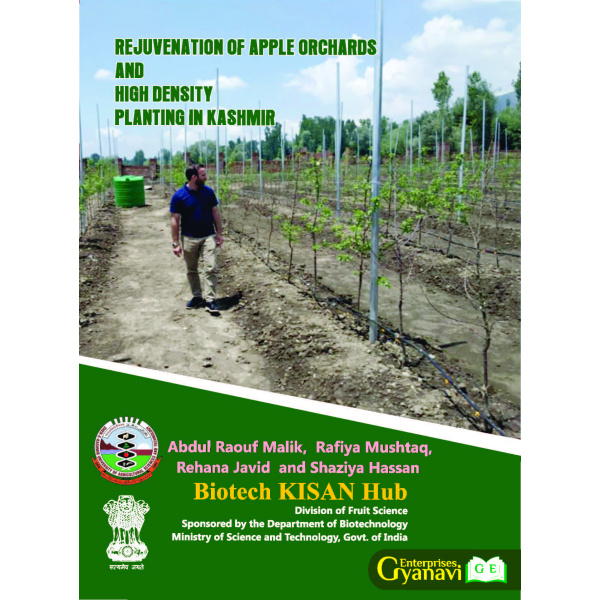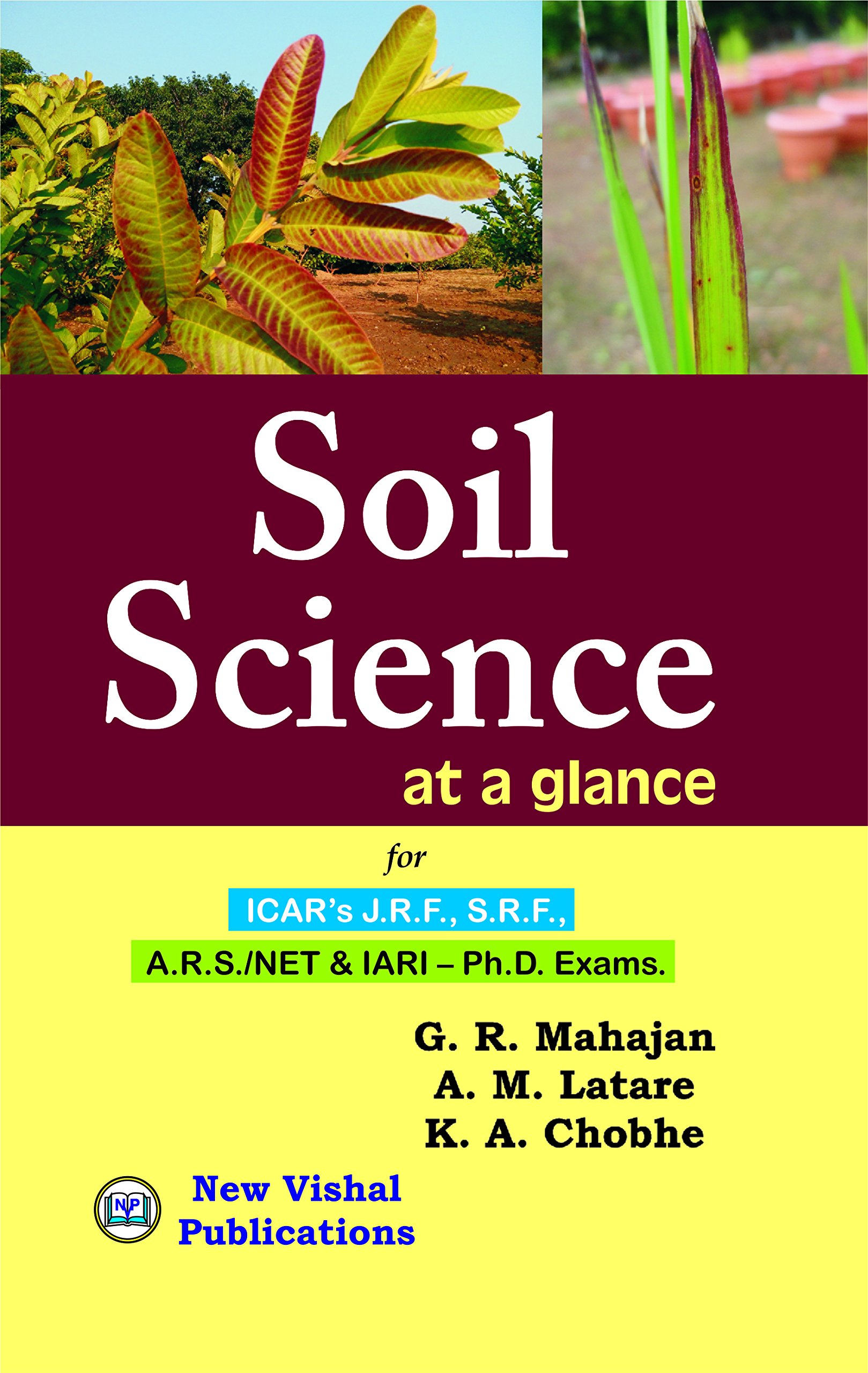“Soil Science at a glance” has been added to your cart. View cart
Add to Wishlist
-12%
Basic Principles of Soil And Water Conservation Engineering Practices
Publisher: Jain Brothers
₹250.00 Original price was: ₹250.00.₹220.00Current price is: ₹220.00.
Basic Principles of Soil And Water Conservation Engineering Practices By Er. Ashwani Kumar Baranwal, Er. Shesh Nath Rawat
Usually dispatched in 2 to 3 days
Safe and Secure Payment Gateway
Categories:
Agriculture, Agriculture Engineering, Books
Tag:
Exclusive
Basic Principles of Soil And Water Conservation Engineering Practices By Er. Ashwani Kumar Baranwal, Er. Shesh Nath Rawat
Book information
Number of pages
178
Format
Paperback
Language
English
Available
5
Related products
-21%
Soil Testing and Soil Microbiology
Soil testing informs the farmers of the imbalances in the soil and guides them in adopting specific fertilizers or soil conditioners to deal with the diagnosed issues. These tests can equip us in taking preventive and corrective measures even before sowing the crop, and that results in an un-compromised final yield. Thus, it is evident that the testing of agricultural soil is pertinent in India. The book contains 14 chapters covering all aspects of soil testing and soil microbiology, which include introduction, sanitation safety guidelines of the lab, physical properties of soil analysis, chemical properties of soil analysis, water sample analysis, prepare soil and water health card, manures and fertilizers: nutrient contents and their identification, organic farming, good lab practices, introduction to soil microbiology, soil microbiology and biogeochemical cycle, soil microbiology and biodegradation and biogeneration, effect of pesticides and other chemicals on the soil, microbiology of the soil and its analysis. It is hoped that this book will be useful for scientists, teachers, students and lab-technicians associated with soil and plant analysis.
-21%
Soil Testing and Soil Microbiology
Soil testing informs the farmers of the imbalances in the soil and guides them in adopting specific fertilizers or soil conditioners to deal with the diagnosed issues. These tests can equip us in taking preventive and corrective measures even before sowing the crop, and that results in an un-compromised final yield. Thus, it is evident that the testing of agricultural soil is pertinent in India. The book contains 14 chapters covering all aspects of soil testing and soil microbiology, which include introduction, sanitation safety guidelines of the lab, physical properties of soil analysis, chemical properties of soil analysis, water sample analysis, prepare soil and water health card, manures and fertilizers: nutrient contents and their identification, organic farming, good lab practices, introduction to soil microbiology, soil microbiology and biogeochemical cycle, soil microbiology and biodegradation and biogeneration, effect of pesticides and other chemicals on the soil, microbiology of the soil and its analysis. It is hoped that this book will be useful for scientists, teachers, students and lab-technicians associated with soil and plant analysis.
-16%
Rejuvenation of Apple Orchards and High Density Planting in Kashmir
Year of Publication 2
Biotech KISAN Hub project being implemented by Division of fruit Science SKUAST-K with financial and technical support from the Department of Biotechnology, Ministry of Science & Technology, Govt. of has been instrumental in increasing in HDAP units in Kashmir from mere 90 to more than 500 covering an area of around 200 ha and rejuvenation units from almost nil to a more than 100 in a short span of 2 years. The apprehensions which were among the farming community have been addressed through regular training and demonstrations carried out by the Biotech KISAN hub for both rejuvenation and HDAP. The farmers in the south Kashmir districts have adopted the HDAP and rejuvenation technology at a faster pace and are currently leading and setting up the trend for all other districts of the valley. The average yield ofHDAP apple and the varieties introduced by Biotech KISAN hub will be around 40-60 t/ha compared to just 11 t/ha from traditional apple trees. The technology has simultaneously been transferred to state departments as well as KVKs. The impact of project activities has been significant in changing the attitude of the state govt. also and is planning to take it as a scheme vigorously. The awareness about both rejuvenation and HDAP was meager in northern districts of the valley and the Biotech KISAN hub team has introduced the first HDAP Units in said districts along with rejuvenation units. It is now expected that the farmers shall adopt HDAP and rejuvenation technology in the future with ease. The state government has decided to take it in mission mode. The HDAP and rejuvenation of apple orchards with new mutant is the future of apple orcharding system in valley and must be adopted in other apple growing regions of India as well.
-16%
Rejuvenation of Apple Orchards and High Density Planting in Kashmir
Biotech KISAN Hub project being implemented by Division of fruit Science SKUAST-K with financial and technical support from the Department of Biotechnology, Ministry of Science & Technology, Govt. of has been instrumental in increasing in HDAP units in Kashmir from mere 90 to more than 500 covering an area of around 200 ha and rejuvenation units from almost nil to a more than 100 in a short span of 2 years. The apprehensions which were among the farming community have been addressed through regular training and demonstrations carried out by the Biotech KISAN hub for both rejuvenation and HDAP. The farmers in the south Kashmir districts have adopted the HDAP and rejuvenation technology at a faster pace and are currently leading and setting up the trend for all other districts of the valley. The average yield ofHDAP apple and the varieties introduced by Biotech KISAN hub will be around 40-60 t/ha compared to just 11 t/ha from traditional apple trees. The technology has simultaneously been transferred to state departments as well as KVKs. The impact of project activities has been significant in changing the attitude of the state govt. also and is planning to take it as a scheme vigorously. The awareness about both rejuvenation and HDAP was meager in northern districts of the valley and the Biotech KISAN hub team has introduced the first HDAP Units in said districts along with rejuvenation units. It is now expected that the farmers shall adopt HDAP and rejuvenation technology in the future with ease. The state government has decided to take it in mission mode. The HDAP and rejuvenation of apple orchards with new mutant is the future of apple orcharding system in valley and must be adopted in other apple growing regions of India as well.
-13%
Principal Of Agricultural Engineering Vol -I
Year of Publication 2
-13%











